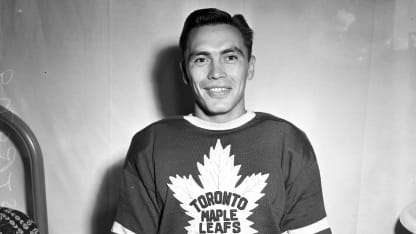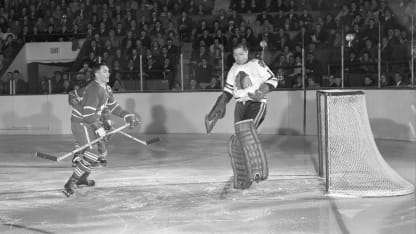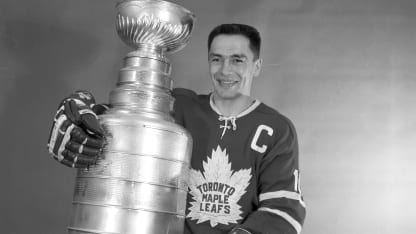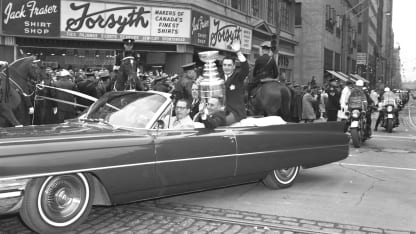As captain of the Maple Leafs beginning with the 1957-58 season, Armstrong lifted the Stanley Cup four times. Toronto won three consecutive championships from 1962-64, then upset the Montreal Canadiens in 1967 with Armstrong scoring an empty-net goal in the Cup-clinching Game 6.
"The National Hockey League family is saddened to learn of the passing of George Armstrong," NHL Commissioner Gary Bettman said. "For 70 years, he represented his beloved Maple Leafs and the entire NHL with class and distinction as a player, coach, executive and ambassador. A humble man and revered leader, Armstrong captained the Leafs for 12 seasons, including to three straight Stanley Cups in 1962, 1963 and 1964 and the stunning 1967 title, and scored the final goal of the Original Six Era in Game Six of the '67 Final.
"Inducted into the Hockey Hall of Fame in 1975, Armstrong had a passion for the game that was equaled only by his enthusiasm for interacting with fans across his city and province. Our game will miss him dearly. The NHL extends its deepest sympathies to George's wife Betty, their children, grandchildren and the entire Armstrong family."
Maple Leafs owner and manager Conn Smythe called him "the best captain, as a captain, the Leafs ever had." Armstrong earned that level of respect from his superiors and his peers alike, his hard work and steady presence helping transform Toronto into a perennial contender.
"George Armstrong did more for the Maple Leafs than any other hockey player who played for me," longtime coach Punch Imlach said in "Hockey Is a Battle," his 1983 autobiography. "He felt always that he had a responsibility to the game, that it gave him a lot, and he was always trying to put some of it back. That made him a wonderful guy for a coach to have around."







